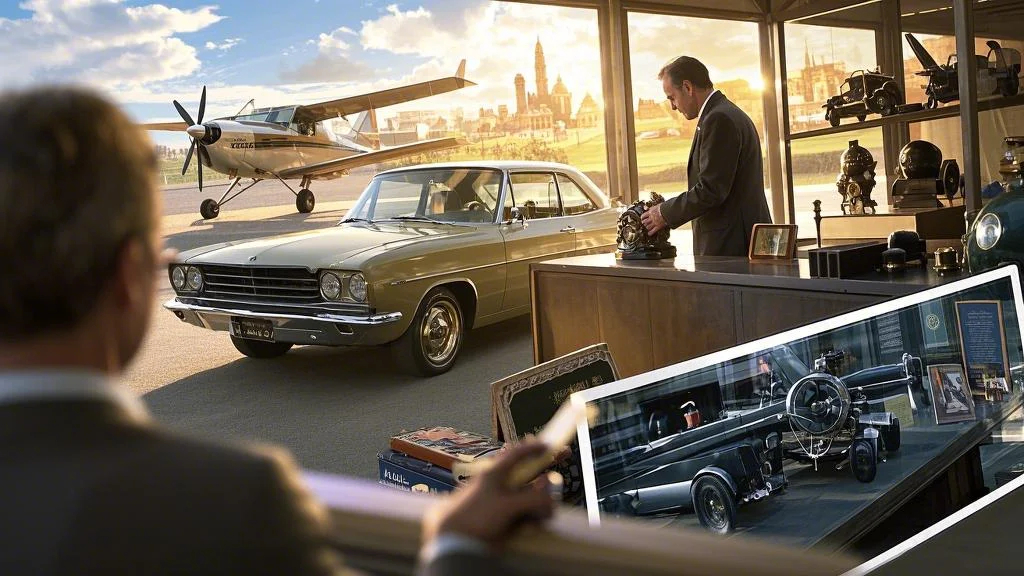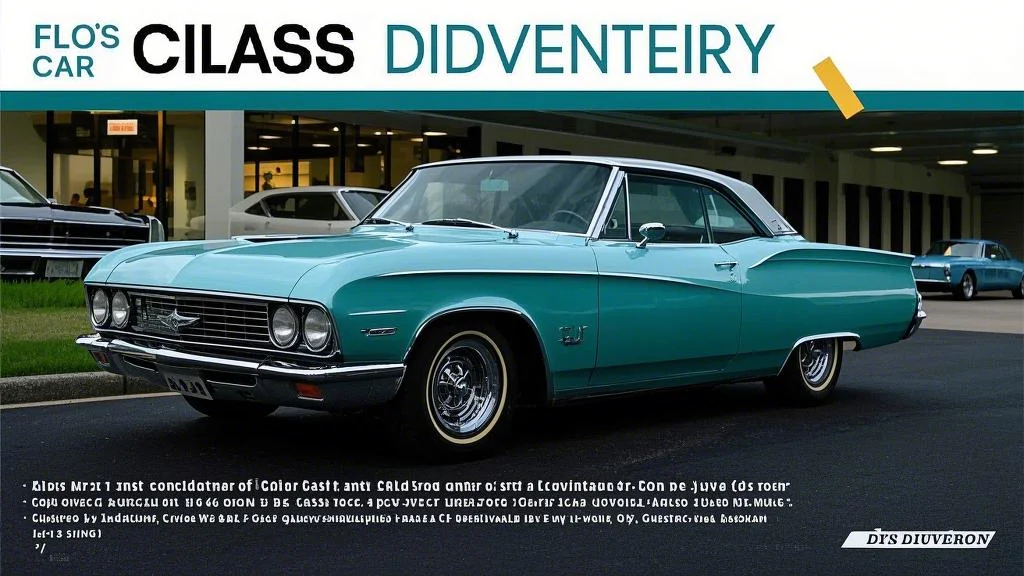Classic Cars Investment: How to Spot the Next Big Collectible

Why Classic Cars Are a Timeless Investment
For high-net-worth individuals (HNWIs), classic cars investment offers a unique blend of nostalgia, craftsmanship, and financial returns. Unlike traditional investments, classic cars are tangible assets that can be driven, displayed, and enjoyed while appreciating in value. Iconic models from brands like Ferrari, Porsche, and Aston Martin have consistently outperformed the market, making them a compelling option for those looking to diversify their portfolio with rare collectibles. By understanding the factors that drive value in classic cars, such as rarity, condition, and historical significance, you can build a profitable collection that enhances both your portfolio and your passion for automobiles.
One of the key advantages of classic cars investment is its ability to generate long-term returns. Over the past few decades, certain models have seen their values skyrocket, making them highly sought-after by collectors. For example, the Ferrari 250 GTO and Porsche 911 have become iconic pieces that command premium prices at auctions. Additionally, classic cars are tangible assets that can be enjoyed and displayed, adding a personal and cultural dimension to your investment. By focusing on high-demand brands and models, you can build a collection that not only retains its value but also appreciates over time. Whether you’re investing in rare collectibles or exploring other alternative assets, classic cars offer a unique opportunity to combine financial returns with personal enjoyment.
How to Spot the Next Big Collectible Car
Identifying the next big collectible in the classic cars investment market requires a combination of research, intuition, and market knowledge. One of the key factors to consider is rarity. Limited-production models or cars with unique features are often more likely to appreciate in value. For example, the Ferrari 250 GTO, of which only 36 were ever made, is one of the most valuable cars in the world. Additionally, the condition of the car plays a critical role in its value. Vehicles that are well-maintained, with original parts and documentation, tend to command higher prices.
Another important factor is historical significance. Cars that have a notable racing history, celebrity ownership, or cultural impact are often more desirable to collectors. For example, the Aston Martin DB5, famously driven by James Bond, has become a highly sought-after model. Additionally, emerging trends in the market can provide valuable insights into future collectibles. For instance, there is growing interest in 1980s and 1990s sports cars, as younger collectors begin to appreciate the nostalgia of these eras. By staying informed about market trends and working with experienced dealers, you can identify the next big collectible and build a profitable classic car portfolio.

Private Jet Ownership: The Ultimate Luxury Investment
For HNWIs seeking the pinnacle of luxury and convenience, private jet ownership offers a unique investment opportunity. While private jets are often seen as a status symbol, they can also be a practical and profitable investment. Owning a private jet provides unparalleled flexibility and access, allowing you to travel on your own schedule and avoid the hassles of commercial airlines. Additionally, private jets can be leased or chartered when not in use, generating income to offset ownership costs.
One of the key benefits of private jet ownership is its ability to enhance your lifestyle and business operations. For frequent travelers, the time saved and convenience offered by a private jet can be invaluable. Additionally, private jets can serve as a mobile office, allowing you to conduct business while in transit. However, owning a private jet requires significant capital and ongoing maintenance costs, making it a long-term investment. By carefully evaluating your needs and working with experienced aviation advisors, you can determine whether private jet ownership is the right choice for you. Whether you’re investing in classic cars or exploring other alternative assets, private jets offer a unique opportunity to combine luxury with practicality.
Sports Memorabilia Investment: A Growing Market
For collectors and investors, sports memorabilia investment offers a unique opportunity to combine passion with financial returns. Items like signed jerseys, game-used equipment, and rare trading cards have seen their values skyrocket in recent years, driven by growing interest from collectors and fans. Iconic pieces, such as Babe Ruth’s autographed baseball or Michael Jordan’s game-worn sneakers, have become highly sought-after, making sports memorabilia a compelling option for those looking to diversify their portfolio with rare collectibles.
One of the key advantages of sports memorabilia investment is its ability to generate long-term returns. Over the past few decades, certain items have seen their values increase significantly, making them highly desirable to collectors. Additionally, sports memorabilia is a tangible asset that can be enjoyed and displayed, adding a personal and cultural dimension to your investment. However, investing in sports memorabilia requires specialized knowledge and careful research to ensure you’re purchasing authentic pieces at fair prices. By working with reputable dealers and auction houses, you can build a profitable collection that stands the test of time.
Buying and Selling Antiques: A Profitable Niche
For those looking to diversify their portfolio with tangible assets, buying and selling antiques offers a unique opportunity to combine history with financial returns. Antiques, such as furniture, art, and decorative objects, are highly collectible items that can appreciate significantly over time. By focusing on high-quality, rare pieces, you can build a valuable collection that enhances both your portfolio and your living space.
One of the key benefits of buying and selling antiques is its ability to generate long-term returns. Over the past few decades, certain items have seen their values increase significantly, making them highly desirable to collectors. Additionally, antiques are tangible assets that can be enjoyed and displayed, adding a personal and cultural dimension to your investment. However, investing in antiques requires specialized knowledge and careful research to ensure you’re purchasing authentic pieces at fair prices. By working with reputable dealers and auction houses, you can build a profitable collection that stands the test of time. Whether you’re investing in classic cars or exploring other alternative assets, antiques offer a unique opportunity to combine financial returns with personal enjoyment.